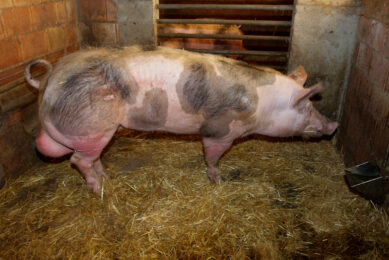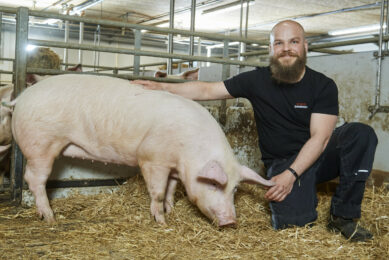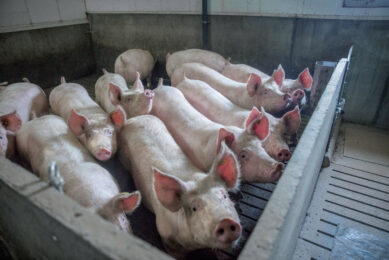First exome sequence completed in pigs

PIC, a division of Genus plc, in collaboration with Edinburgh Genomics and The Roslin Institute at the University of Edinburgh, UK, announced that they have been the first to complete exome sequencing in pigs.
Exome sequencing is a cost-effective strategy to selectively sequence the most important parts of DNA and enables faster genomic progress.
The extensive results of this research, published in the journal BMC Genomics in July 2014, were generated from a targeted set of 96 pigs representing the known variation in one of PIC’s leading global proprietary populations in order to capture as many mutations as possible. Exome sequencing has been used in humans to aid in the diagnosis of Mendelian disorders (genetic disorders associated with the mutation of a single gene). PIC will use the information derived from this research, which also received funding from the Roslin Foundation and the Biotechnology and Biological Sciences Research Council (BBSRC), to achieve more accurate genomic selection in swine, including work to reduce embryonic and/or fetal death loss in pregnant pigs.
Professor David Hume, Director of The Roslin Institute and a co-author of the study said: “The development of a novel genomic platform is a significant output from the long term strategic partnership between The Roslin Institute and Genus. Within the Institute, we see many applications of this platform in biomedical research as well as more applied applications in animal breeding.”
Dr. Jonathan Lightner, Genus chief scientific officer, congratulated Edinburgh Genomics for a well-conducted study achieving coverage statistics similar to those seen with commercially available human exome kits. He added “PIC will continue to invest in and partner with leading global institutions to develop the next generation of technologies that drive faster genomic progress.”
A link to the research paper can be found here.











